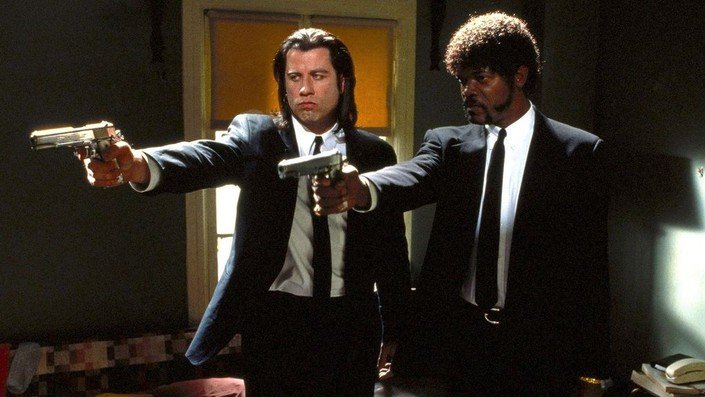
In the world of cinema, there are few films as revered and influential as Citizen Kane. Directed by the legendary Orson Welles, this cinematic masterpiece has long been hailed as one of the greatest movies of all time. Yet, for some, the sheer brilliance of Citizen Kane can be difficult to fully appreciate in the modern era. As my friend recently pointed out, the innovations that made the film so groundbreaking have since become the very foundation of filmmaking.
However, as I explained to my friend, the true genius of Citizen Kane lies in its ability to transcend time and continue to captivate audiences. The film’s revolutionary techniques, such as its innovative use of lighting, camera angles, and depth of field, have become the building blocks of modern cinema. But it is the film’s deeper exploration of themes like power, corruption, and the pursuit of the American Dream that truly cement its status as a cinematic masterpiece.
Fortunately, for those seeking to fully appreciate the impact of Citizen Kane, there is no better guide than David Fincher’s latest film, Mank. This cinematic tour de force not only delves into the making of Citizen Kane, but also provides a fascinating glimpse into the political and social landscape of Old Hollywood that gave birth to this iconic work.
Mank: Exploring the Complexities of Old Hollywood
Mank is a film that is as ambitious as it is captivating. Directed by the meticulous and visually stunning David Fincher, the movie follows the story of Herman J. Mankiewicz, the screenwriter who collaborated with Orson Welles to create the screenplay for Citizen Kane.
The film’s narrative is a complex tapestry that weaves together several key elements. First and foremost, it is a character study of Mankiewicz, a brilliant but troubled writer whose personal demons and political convictions ultimately shaped the course of his career. Through Mank’s eyes, we witness the inner workings of the Hollywood studio system, where power, influence, and corruption were the currency of the day.
But Mank is more than just a behind-the-scenes look at the making of a cinematic masterpiece. It is also a commentary on the political and social climate of the 1930s, a time of great upheaval and change in America. The film explores the complex relationship between the Hollywood elite and the political establishment, as well as the ways in which the film industry both reflected and shaped the zeitgeist of the era.
The Genius of Mank’s Storytelling
One of the most remarkable aspects of Mank is the way in which Fincher weaves together these various narrative threads. The film’s non-linear structure, which jumps back and forth in time, allows the audience to piece together the complex web of relationships and events that ultimately led to the creation of Citizen Kane.
Fincher’s attention to detail is truly breathtaking, as he meticulously recreates the look and feel of Old Hollywood. From the lush black-and-white cinematography to the impeccable production design, every frame of the film is a work of art. But it is the film’s thematic depth that truly sets it apart, as Fincher explores the ways in which power, corruption, and the pursuit of the American Dream intersect in the world of Hollywood.
At the heart of Mank is the character of Herman J. Mankiewicz, played with remarkable depth and nuance by Gary Oldman. Mankiewicz is a complex and flawed protagonist, a brilliant writer whose personal demons and political convictions ultimately cost him dearly. Oldman’s performance is a tour de force, capturing the character’s wit, intelligence, and deep-seated cynicism with remarkable precision.
Surrounding Oldman is an equally impressive supporting cast, including Amanda Seyfried as Marion Davies, Lily Collins as Rita Alexander, and Arliss Howard as Louis B. Mayer. Each actor brings their own unique perspective to the film, adding layers of complexity and depth to the overall narrative.
The Enduring Legacy of Citizen Kane

But Mank is more than just a character study or a behind-the-scenes look at the making of a classic film. It is also a meditation on the enduring legacy of Citizen Kane, and the ways in which it continues to shape and influence the art of filmmaking.
Throughout the film, Fincher pays homage to the groundbreaking techniques and innovations that made Citizen Kane such a revolutionary work of cinema. From the film’s innovative use of lighting and camera angles to its masterful use of depth of field, Mank is a love letter to the cinematic genius of Orson Welles and his collaborators.
But Fincher also goes beyond simply recreating the technical aspects of Citizen Kane. He also explores the deeper thematic resonance of the film, examining the ways in which it grappled with the complexities of power, corruption, and the pursuit of the American Dream.
In many ways, Mank is a film that speaks to the present moment as much as it does to the past. The film’s exploration of the relationship between the Hollywood elite and the political establishment, and the ways in which the film industry both reflected and shaped the zeitgeist of the era, feels particularly relevant in our current political climate.
The Enduring Influence of Old Hollywood
One of the most fascinating aspects of Mank is the way in which it sheds light on the enduring influence of Old Hollywood. Despite the many changes and upheavals that have transformed the film industry over the decades, the legacy of the studio system and the power brokers who dominated it continues to shape the way we think about and engage with cinema.
Throughout the film, Fincher explores the ways in which the Hollywood elite wielded their power and influence, using the film industry as a means of shaping public opinion and advancing their own political and social agendas. From the powerful studio heads like Louis B. Mayer to the media moguls like William Randolph Hearst, the film paints a portrait of a world in which power and money were the primary currencies of success.
But Mank also suggests that the legacy of Old Hollywood extends far beyond the confines of the industry itself. The film’s exploration of the ways in which the film industry both reflected and shaped the broader social and political landscape of the 1930s is a testament to the enduring influence of this era.
Indeed, as we look around at the current state of the entertainment industry, it’s clear that the legacy of Old Hollywood continues to shape the way we think about and engage with the art of filmmaking. From the power dynamics that govern the industry to the ways in which films are marketed and distributed, the imprint of the studio system is still very much present.
The Enduring Brilliance of Mank
In the end, Mank is a film that is as ambitious as it is captivating. Directed by the meticulous and visually stunning David Fincher, the movie is a masterful exploration of the complexities of Old Hollywood, the making of a cinematic masterpiece, and the enduring legacy of the studio system.
Through its rich and nuanced storytelling, Mank not only pays homage to the genius of Citizen Kane, but also offers a profound meditation on the ways in which power, corruption, and the pursuit of the American Dream have shaped the art of filmmaking. It is a film that demands to be seen and savored, a cinematic experience that will linger in the mind long after the credits have rolled.
Mank is a cinematic masterpiece that delves into the making of Citizen Kane and the complexities of Old Hollywood.
Directed by the meticulous and visually stunning David Fincher, the film is a rich and nuanced exploration of power, corruption, and the pursuit of the American Dream.
At the heart of the film is the character of Herman J. Mankiewicz, played with remarkable depth and nuance by Gary Oldman.
Mank pays homage to the groundbreaking techniques and innovations that made Citizen Kane such a revolutionary work of cinema, while also exploring the deeper thematic resonance of the film.
The film sheds light on the enduring influence of Old Hollywood, and the ways in which the legacy of the studio system continues to shape the art of filmmaking.


